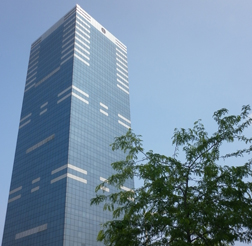Simpler attacks, involving fewer people and less planning, are becoming more common – including against national security targets, as in Northern Ireland – and can be very difficult to detect. That is among the points by David Anderson, the Independent Reviewer of Terrorism Legislation, in an annual report.
He did offer some good news; the threat to the UK from a terrorist attack directed by al-Qaida in the FATA of similar scale and complexity to 9-11 or the airline liquid bomb plot has decreased since the mid-2000s. Most terrorist incidents recorded by Europol relate to nationalists or separatists, rather than what the European policing body calls ‘religiously inspired’. That said, Anderson reviewed recent documented cases, such as possible attacks against the London Stock Exchange; improvised explosive devices (IEDs) in rucksacks; and Territorial Army and bases as among ‘national security’ targets.
He wrote: “There is a continuing threat to the UK from lone actors (a term preferred by the authorities to “lone wolves”, because considered less glamorous), who have not received training or tasking from terrorist organisations other than, in some cases, drawing inspiration and motivation from online sermons and other extremist ideological material. These individuals develop their intent, capability and target selection independently.” While any attacks would be of small scale and not as sophisticated, ‘they tend to be unpredictable, quicker to progress and more difficult to detect’. The case of a convicted IT worker for British Airways suggests that terrorists may play on such insiders’ knowledge of industry. As he points out, terrorists cannot be ‘neatly categorised’. While the mainstream media made much of the ‘lone actor’ theme, the report covered all aspects of the threat – in Northern Ireland (’bombings, shootings and killings continue to be an occasional feature of life in parts’), and the extreme right wing – and the Government’s work, including port and border security.
He made the wise point that while the terrorist threat is ‘far from negligible’, the public has to judge its appetite for risk, which requires understanding, rather than ‘unnecessary fears’, and ‘allocation of excessive resources to the counter-terrorism machine’. As he laid out, it is not only the terrorist that has an interest in magnifying the threat. “The terrorist enjoys not only notoriety, but in some circles glamour of a sort that mere organised crime or robbery could never confer. By spreading destruction and fear, he may hope for rewards in this world, or the next. But he is not the only person to have an interest in magnifying the threat. Terrorism swells the budgets of military, security, intelligence and police forces, universities, publishers and film studios. It provides the ideal reason – or excuse – for the introduction of repressive laws. It makes the careers of politicians, police officers, civil servants, academics, analysts, lawyers and demagogues. It sells security fences, armoured cars and CCTV cameras; and it attracts readers and viewers to the media, to the mutual benefit of the terrorist seeking publicity, the expert called upon to opine and the media seeking an audience. When so many people have a vested interest (whether they acknowledge it or not) in the seriousness of the threat, one must remain constantly open to the possibility that the threat is being exaggerated. The number of deaths caused by terrorism, in the United Kingdom and generally in the West, is small – indeed statistically almost insignificant.”
Comment
Commenting, Keith Hammond, Managing Director of counter-terror threat trainers OPTIMA, said: “There is no doubt that security threat levels are increasing on a global scale. Events like the Boston Bomb and the more recent bomb attempt outside a West Midlands mosque last week are stark reminders that society as a whole needs to be much more aware of the potential threats surrounding everyday life. Improvised Explosive Devices (IEDs) are becoming the weapon of choice for these small scale threats … they are low budget, low technology, hard to spot – while at the same time having high strategic impact.
“This is the challenge that faces the security and defence industry. As the nature of IEDs constantly evolves, government and commercial organisations with responsibility for people and property must consistently think one step ahead of the next threat, develop new defence measures and train people to be vigilant to potential threats around them. If we can do this, we’ll be in a much better position to anticipate and overcome this more complex range of low-tech threats.”
For the reviewer’s report in full click here.
See also the recent report – https://www.mi5.gov.uk/home/news/news-by-category/reports-and-publications/2012-13-intelligence-and-security-committee-report-published.html









